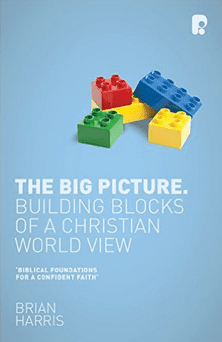Michael Barber, and his buddies are my favorite young Catholic theologians today:
Today has been an extremely exciting day!
The International Theological Commission has a new document out, Theology Today:Perspectives, Principles and Criteria. This is an incredibly helpful guide to doing Catholic theology.
To be sure, this is not a magisterial document–an official document from the Church’s teaching office. Nonetheless, this is important reading for Catholics interested in theology. Even non-Catholics I think will find it illuminating.
It contains some rather strong–even surprising statements. Something that will surely surprise non-Catholics (and even Catholics!) is the stress put on the centrality of Scripture in Theology!Indeed, as I’ll explain, some of the statements are downright shocking! But more on that in a minute….Theology Today begins by discussing some of the advances made in theology since the Second Vatican Council (1962-1965). However, it also notes certain challenges that have arisen in the post-Conciliar era:
“[The period after Vatican II] has also seen a certain fragmentation of theology, and in the dialogue just mentioned theology always faces the challenge of maintaining its own true identity. The question arises, therefore, a sto what characterises Catholic theology and gives it, in and through its many forms, a clear sense of identity in its engagement with the world of today.”(no. 1)…
Going on, Theology Today begins–following the document Dei Verbum from the Second Vatican Council and the Catechism of the Catholic Church–by emphasizing the centrality of the Word of God. We read:
“Theology, in all its diverse traditions, disciplines and methods, is founded on the fundamental act of listening in faith to the revealed Word of God, Christ himself.Listening to God’s Word is the definitive principle of Catholic theology; it leads to understanding and speech and to the formation of Christian community . . . . The unity of theology, therefore does not require uniformity, but rather a single focus on God’s Word and an explication of its innumerable riches by theologies able to dialogue and communicate with one another. Likewise, the plurality of theologies should not imply fragmentation or discord, but rather the exploration in myriad ways of God’s one saving truth.” (nos. 4-5)
The “Word of God” is, of course, Christ (John 1:1). Thus, Catholics do not believe in sola Scriptura.
“The Church greatly venerates the Scriptures, but it is important to recognise that ‘the Christian faith is not a “religion of the book”; Christianity is the “religion of the word of God”, not of “a written and mute word, but of the incarnate and living Word”’.[11]
Nonetheless, though the “Word of God” is a Person, not reducible to Scripture, Scripture must remain the “soul of Catholic theology”. In fact, the document describes Scripture as the “normative witness” to the truth theology must explicate:
The ‘study of the sacred page’ should be the ‘very soul of sacred theology’.[29] This is the Second Vatican Council’s core affirmation with regard to theology. Pope Benedict XVI reiterates: ‘where theology is not essentially the interpretation of the Church’s Scripture, such a theology no longer has a foundation’.[30] Theology in its entirety should conform to the Scriptures, and the Scriptures should sustain and accompany all theological work, because theology is concerned with ‘the truth of the gospel’ (Gal 2:5), and it can know that truth only if it investigates the normative witness to it in the canon of sacred Scripture,[31] and if, in doing so, it relates the human words of the Bible to the living Word of God. ‘Catholic exegetes must never forget that what they are interpreting is the word of God…. They arrive at the true goal of their work only when they have explained the meaning of the biblical text as God’s word for today.’
Did you catch all that? That’s a paragraph that merits reading and re-reading.











